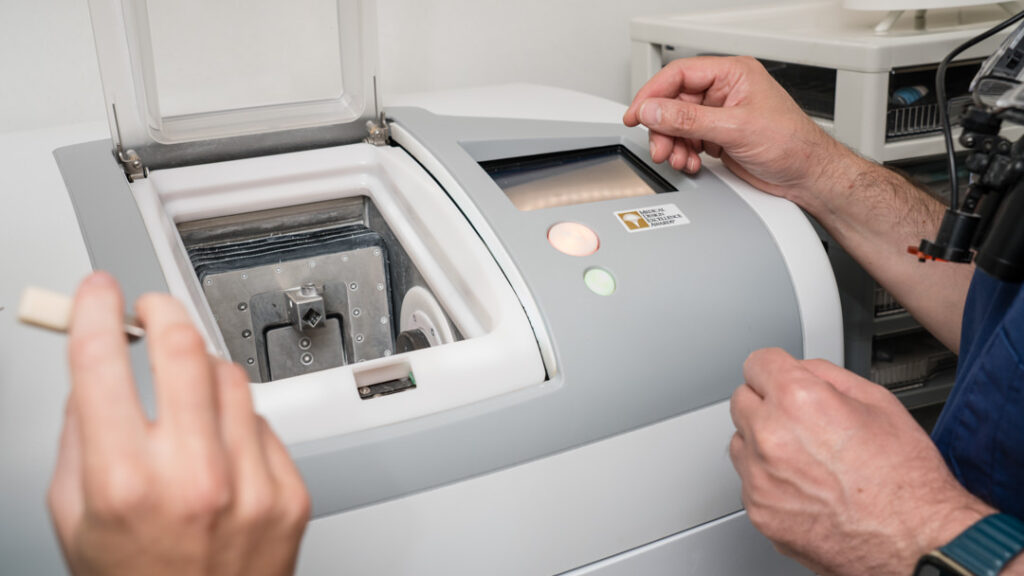
Types of Dental Crowns and Their Cost
Exploring Dental Crown Types, Costs, and Materials Essential for Individuals Contemplating Dental Procedures.
Dental crowns are a common restorative dental treatment used to repair damaged or decayed teeth. They are custom-made caps that are placed over the tooth to restore its shape, size, strength, and appearance. There are different types of dental crowns available, each with its own set of advantages and costs.
This article aims to provide a comprehensive overview of the various types of dental crowns and their associated costs. It will delve into the different materials used for crowns, such as porcelain, metal, and porcelain-fused-to-metal, and discuss their benefits and drawbacks.
Additionally, factors influencing the choice of dental crown will be explored, including aesthetics, durability, and the specific tooth being treated.
By understanding the different types of dental crowns and their costs, patients can make informed decisions about their dental treatment options.
Types of Dental Crowns
When it comes to dental crowns, there are several types available. Porcelain crowns are popular for their natural appearance and durability. Ceramic crowns are another option that offers a strong and aesthetically pleasing result. Metal crowns, such as gold or silver, are known for their strength but may not be as visually appealing. Composite crowns are a cost-effective option, while zirconia crowns are highly durable and can provide a natural look.
These different types of dental crowns offer patients a range of choices based on their individual needs and preferences.
Porcelain Dental Crowns
Porcelain crowns, a type of dental crown, are widely used in restorative dentistry for their natural appearance and durability. These are made from a ceramic material that closely resembles the color and texture of natural teeth, making them an ideal choice for patients who want a seamless smile.
Here are three important things to know about porcelain dental crowns:
- Superior aesthetics: Porcelain crowns are highly regarded for their ability to mimic the natural look of teeth. They can be color-matched to blend in seamlessly with the surrounding teeth, creating a beautiful and natural smile.
- Durability: Despite their delicate appearance, porcelain crowns are remarkably strong and durable. They can withstand the daily wear and tear of chewing and biting, providing long-lasting results.
- Cost considerations: Porcelain crowns are generally more expensive than other types of dental crowns, such as metal or composite crowns. The tooth crown cost may vary depending on factors such as the location of the dental practice and the complexity of the case. It is important to consult with a dentist to determine the crown’s cost and explore available options.
Ceramic Dental Crowns
Ceramic crowns, a prevalent type of dental crown, are widely utilized in restorative dentistry due to their natural aesthetics and durability. These crowns are made from a material that closely resembles the appearance of natural teeth, making them an excellent choice for those seeking a seamless and natural-looking restoration.
Ceramic crowns can be customized to match the color, shape, and size of the patient’s existing teeth, resulting in a seamless and aesthetically pleasing smile. In addition to their appealing appearance, ceramic crowns are also known for their strength and longevity.
While the cost of ceramic crowns may be higher compared to other types of dental crowns such as porcelain or metal crowns, many patients find the investment worthwhile due to the superior appearance and durability they offer.
Metal Dental Crowns
Metal crowns, known for their durability and strength, are a popular type of dental crown used in restorative dentistry. These crowns are made from various types of metals, including gold alloy, palladium, nickel-chromium alloy, and base metal alloy.
Here are three key points to consider about metal crowns:
- Durability: Metal crowns are highly resistant to wear and tear, making them a long-lasting option for dental restorations. They can withstand the forces of chewing and grinding without fracturing or chipping.
- Biocompatibility: Metal crowns are well-tolerated by the body, making them suitable for patients with metal allergies. However, some people may be concerned about the aesthetic appearance of metal crowns, especially when placed on visible teeth.
- Cost: Metal crowns are generally more affordable compared to other types of dental crowns. The cost may vary depending on the type of metal used and the complexity of the dental restoration.
Composite Dental Crowns
Composite crowns, another type of dental crown, offer a versatile and aesthetically pleasing option for dental restorations. Unlike metal crowns, composite crowns are made from a tooth-colored material that can blend seamlessly with the surrounding teeth. This makes them an excellent choice for patients who want a natural-looking smile.
In terms of cost, composite crowns are generally more affordable compared to other types of dental crowns. The exact crown cost can vary depending on various factors such as the material used, the complexity of the procedure, and the location of the dental practice.
However, it is important to note that composite crowns may not be as durable as metal crowns and may require more frequent replacement.
Nevertheless, for patients looking for an affordable and aesthetically pleasing dental crown option, composite crowns can be an excellent choice.
Zirconia Dental Crowns
Zirconia crowns, a popular choice for dental restorations, offer a durable and aesthetically pleasing option for patients seeking a high-quality dental crown. Made from zirconium dioxide, these crowns are known for their strength and natural appearance.
Here are three key points to consider regarding zirconia crowns:
- Superior durability: Zirconia crowns are highly resistant to chipping and cracking, making them an ideal choice for patients with a history of teeth grinding or clenching. They can withstand the forces of regular biting and chewing, ensuring long-term functionality.
- Excellent aesthetics: Zirconia crowns closely resemble natural teeth, thanks to their translucent appearance. This makes them an excellent choice for front teeth restorations. Their color can be customized to match the surrounding teeth, resulting in a seamless and natural-looking smile.
- Higher cost: Compared to other types of dental crowns, zirconia crowns tend to be more expensive. The higher cost is due to the material’s superior quality and the advanced technology used in their fabrication. However, the long-lasting durability and aesthetic benefits make them a worthwhile investment for many patients.
When considering zirconia crowns, it is essential to consult with your dentist to determine the best treatment plan and discuss the associated costs and fees.
Stainless Steel Crowns
Stainless steel crowns are a commonly used type of dental crown due to their durability and cost-effectiveness. These crowns are typically used for temporary purposes, especially in children, as they are less expensive than other types of crowns.
Stainless steel crowns are made of a strong metal material that provides excellent strength and protection for the tooth. The procedure for placing a stainless steel crown involves shaping the tooth and then fitting the crown over it.
The care for stainless steel crowns is relatively simple, requiring regular brushing and flossing to maintain oral hygiene. While stainless steel crowns may not offer the same aesthetic appeal as other types of crowns, they serve an important role in protecting and restoring the functionality of teeth for patients of all ages.
Gold Crowns
Gold crowns are a commonly chosen type of dental crown, frequently preferred for their durability, aesthetic appeal, and long-lasting results. Here are three key points to consider about gold crowns:
- Material: Gold crowns are made from a combination of gold and other metals like copper or palladium. This makes them highly durable and resistant to wear and tear. Gold crowns are known for their strength and can withstand the forces of chewing and biting.
- Aesthetics: While gold crowns may not be as popular for front teeth due to their distinct appearance, they are a great option for molars and premolars. Their metallic color can blend well with natural teeth, and they have a unique shine that some people find appealing.
- Cost: The cost of a gold crown can vary depending on factors such as the dentist’s location, the complexity of the procedure, and the amount of gold used. Generally, gold crowns tend to be more expensive than other types of crowns, such as porcelain or metal crowns. However, their durability and longevity can make them a worthwhile investment in the long run.
Dental Crown Cost, Procedure, and Care from the Dentist:
The costs of dental crowns are influenced by several factors, with material selection, dentist fees, and geographical location being the most significant. The choice of crown material, such as porcelain, ceramic, metal, or composite, plays a crucial role in cost variation, considering factors like durability and aesthetics. Dentist fees contribute substantially, reflecting their expertise and the complexity of the procedure. Additionally, geographical location plays a role, as the cost of living and regional dental care standards can impact the overall expenses associated with obtaining dental crowns. Understanding these factors is essential for individuals seeking dental crowns to make informed decisions based on their preferences and budget constraints.
One common method for placing dental crowns is known as the indirect restoration technique. With this method, the dental crown is fabricated outside the patient’s mouth.
The procedure starts with the dentist preparing the tooth by removing any decay or damage. Then, an impression of the tooth is taken, which serves as a guide for creating the dental crown. The impression is sent to a dental laboratory, where the crown is custom-made using various materials such as porcelain, ceramic, metal, or a combination of these. The choice of material depends on factors such as strength, aesthetics, and the patient’s preferences.
Once the dental crown is ready, the patient returns to the dentist for the final placement. The tooth is cleaned and prepared for bonding, and the crown is carefully positioned and secured using dental cement or adhesive.
After the procedure, the dentist provides instructions on how to care for the dental crown. Good oral hygiene, including regular brushing and flossing, is crucial to maintain the longevity of the crown. It is also important to avoid biting or chewing on hard objects that can damage the crown. Regular dental check-ups are recommended to ensure the crown’s stability and to address any potential issues promptly.
Factors Influencing Tooth Crown Choices
Factors such as durability, aesthetics, and budget play a significant role in influencing the choice of tooth crowns. When considering the types of dental crowns available, patients must take into account various factors to make an informed decision:
- Material: Different materials, such as porcelain, metal, or a combination of both, offer distinct advantages. Porcelain crowns are known for their natural appearance, making them a popular choice for front teeth. Metal crowns, on the other hand, provide exceptional strength and durability, making them suitable for back teeth.
- Strength: The strength of a dental crown is crucial, especially for teeth subjected to significant biting forces. Patients with a history of teeth grinding or clenching may require a stronger material, such as metal or porcelain-fused-to-metal crowns, to withstand these forces and prevent premature wear or fractures.
- Budget: Tooth crown cost varies depending on the material used and the complexity of the procedure. Porcelain crowns tend to be more expensive than metal crowns, but they offer superior aesthetics. Temporary crowns may also be needed during the treatment process, and their cost should be considered as well.
Dental Crown Material Guide
When considering the types of dental crowns available, patients must take into account the material used, as it greatly influences the overall quality and durability of the crown. There are several materials commonly used for dental crowns, each with its own unique characteristics.
Porcelain crowns are popular due to their natural appearance and ability to blend seamlessly with surrounding teeth. They are an excellent choice for front teeth, as they can mimic the translucency of natural tooth enamel. However, porcelain crowns are not as strong as other materials and may be prone to chipping or cracking.
Metal crowns, typically made from gold or silver alloys, are known for their durability and strength. They are highly resistant to wear and can withstand biting and chewing forces. However, their metallic appearance may not be aesthetically pleasing, making them more suitable for molars or back teeth.
Zirconia crowns are a newer option that combines the strength of metal crowns with the natural appearance of porcelain crowns. They are highly durable and resistant to chipping or cracking. Additionally, zirconia crowns are biocompatible, meaning they are less likely to cause allergic reactions.
Temporary crowns are usually made from acrylic or stainless steel. They are used as a temporary measure while a permanent crown is being fabricated. These crowns are not as durable as permanent crowns and require extra care to prevent damage.
Ceramic crowns are similar to porcelain crowns, but they are made from a different type of ceramic material. They offer excellent aesthetics and can be customized to match the color and shape of neighboring teeth. Ceramic crowns are highly resistant to staining, making them a popular choice for front teeth.
Conclusion
In conclusion, there are various types of dental crowns available, each with its own advantages and cost considerations. The choice of a dental crown depends on factors such as the location of the tooth, aesthetic preferences, and budget. It is important to discuss with a dentist to determine the most suitable crown material and procedure for individual needs. Regular dental care and maintenance are crucial to ensure the longevity and effectiveness of dental crowns



